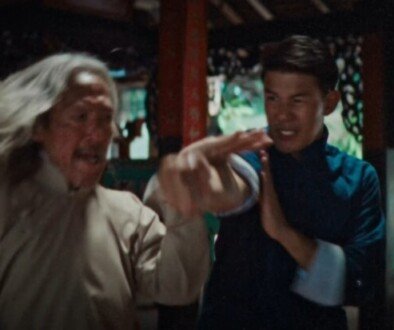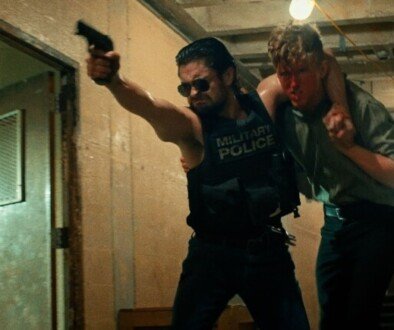Remembering Stanley Fung: The Enduring Spark of Hong Kong’s Lucky Stars
On the vibrant tapestry of Hong Kong cinema, few threads shine as brightly—or as comically—as those woven by Stanley Fung Shui-fan. The veteran actor, director, and comedian, beloved for his irrepressible energy and timing as one of the “Lucky Stars,” passed away on October 31, 2025, at the age of 80. With a career spanning over five decades and more than 135 films, Fung’s legacy is one of laughter amid chaos, from the slapstick heights of the 1980s to poignant cameos in modern thrillers. As tributes flood in from fans and peers like Sammo Hung, we celebrate the man who turned every mishap into mirth, leaving an indelible mark on Cantonese comedy.
Born on June 1, 1945, in Guangdong, China, into a family of Cantonese opera performers, Stanley Fung was destined for the spotlight. The rhythmic chants and dramatic flair of traditional theater infused his early years, fostering a natural affinity for performance. Relocating to Hong Kong, Fung’s formal entry into showbiz came in 1967 with a bit part in Chor Yuen’s action flick To Rose with Love, marking the start of a prolific journey.
By 1971, he had joined TVB, Hong Kong’s burgeoning television powerhouse, where he honed his craft in a slew of series, blending drama with his emerging comedic chops. A brief stint at Commercial Television (CTV) from 1976 to 1978 as a producer sharpened his behind-the-scenes acumen before its closure sent him back to TVB. It was here, amid the colony’s explosive film boom, that Fung truly ignited—transitioning to cinema in the late 1970s with roles in fantasies, horrors, and, increasingly, comedies that showcased his everyman appeal.
Fung’s directorial debut arrived in 1974 with the Mandarin drama The Looks of Hong Kong, but it was his acting that catapulted him to fame. He eventually helmed nine more features, wrote four, and produced three, proving his talents extended far beyond the punchline. In 1989, he relocated to Taiwan, acquiring citizenship in 1996, where he continued working while advocating for cross-strait unity under democratic ideals—a passion rooted in his support for the Kuomintang (KMT).
Fung’s zenith arrived in the 1980s as a core member of the “Lucky Stars” (or “Five Lucky Stars”) ensemble—a ragtag group of comedians including Sammo Hung, Richard Ng, Charlie Chin, and Eric Tsang, who redefined Hong Kong’s action-comedy hybrid. Kicking off with Winners and Sinners (1983), where Fung played the hapless “Rookie,” the series exploded into a franchise of chaotic capers blending martial arts mayhem with ribald humor.
His iconic role as “Rawhide” debuted in My Lucky Stars (1985), a sequel that introduced enduring characters and pitted the Stars against villains in uproarious set pieces. Directed by Sammo Hung, the film grossed massively and spawned hits like Twinkle, Twinkle Lucky Stars (1985), How to Meet the Lucky Stars (1985), and The Lucky Stars Go Places (1986). Fung’s Rawhide was the perfect foil: a bumbling, wisecracking sidekick whose pratfalls and ad-libs grounded the high-flying action, earning him a Best Supporting Actor nomination at the 5th Hong Kong Film Awards.
Beyond the Stars, Fung’s filmography is a treasure trove of genre-spanning gems. He brought manic energy to Sammo Hung’s Wheels on Meals (1984) as the chaotic Moks, a role that captured the era’s nomadic spirit. In ghost comedies like The Lunatics (1986) and Haunted Jail House (1987), his wide-eyed panic amplified the supernatural hijinks. The 1990s saw him pivot to edgier fare, including a memorable turn as an amnesiac hitman in Pou-Soi Cheang’s thriller Accident (2009), a stark contrast to his comedic roots that showcased his dramatic range.
Fung directed and co-wrote Return of the Lucky Stars (1989), a fitting swan song for the franchise, while later works like The Musical Vampire (1988) and To Hell with the Devil (1989) leaned into his love for fantastical farce. Even into the 2010s, he popped up in ensemble comedies such as I Love Hong Kong (2011) and Look Out, Officer! (1990), a role that highlighted his enduring box-office pull.
On television, Fung’s TVB tenure included over a dozen series in the 1970s, from dramas to variety shows, laying the groundwork for his film stardom.
Though nominations like his Hong Kong Film Award nod were plentiful, Fung’s true accolades lay in his cultural impact: the Lucky Stars films grossed millions and influenced global comedies, from Rush Hour to modern K-dramas. He earned praise for revitalizing Cantonese humor during Hong Kong’s golden age, blending opera-inspired physicality with street-smart wit.
Off-screen, Fung was a family man and political voice, using his platform to champion reunification. His relocation to Taiwan didn’t dim his Hong Kong ties; he returned for projects and remained a fixture at industry events.
Stanley Fung’s death closes a chapter on Hong Kong’s comedy dynasty, but his spirit—ever the underdog turning defeat into delight—lives on in every rewatch of My Lucky Stars or Wheels on Meals. At 80, after a lifetime of stealing scenes and directing destinies, he leaves behind a filmography that reminds us: in the face of absurdity, a well-timed gag is the ultimate triumph. Rest easy, Rawhide. The stars are a little dimmer without your shine.
Lead image: Stanley Fung in “Twinkle Twinkle Lucky Stars” (Golden Harvest)
Living through Cinematic memories while surviving the most putrified film swamps





